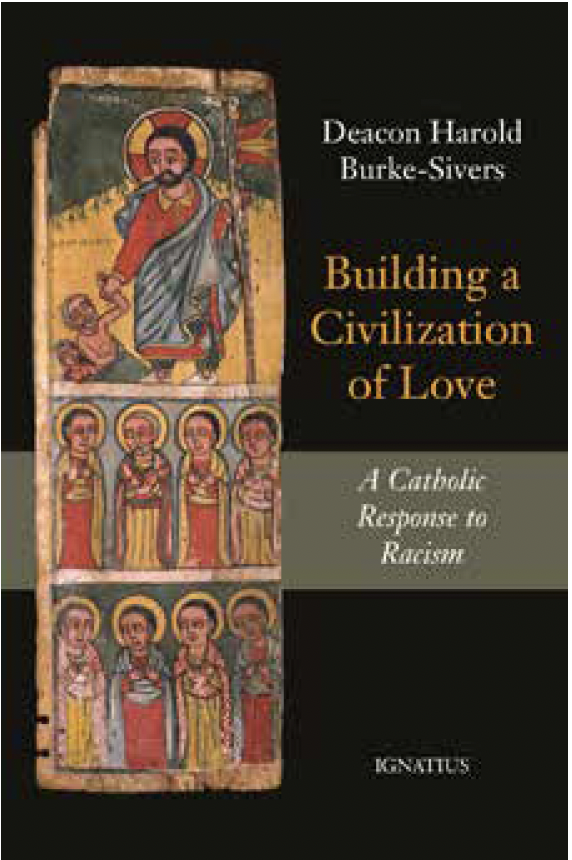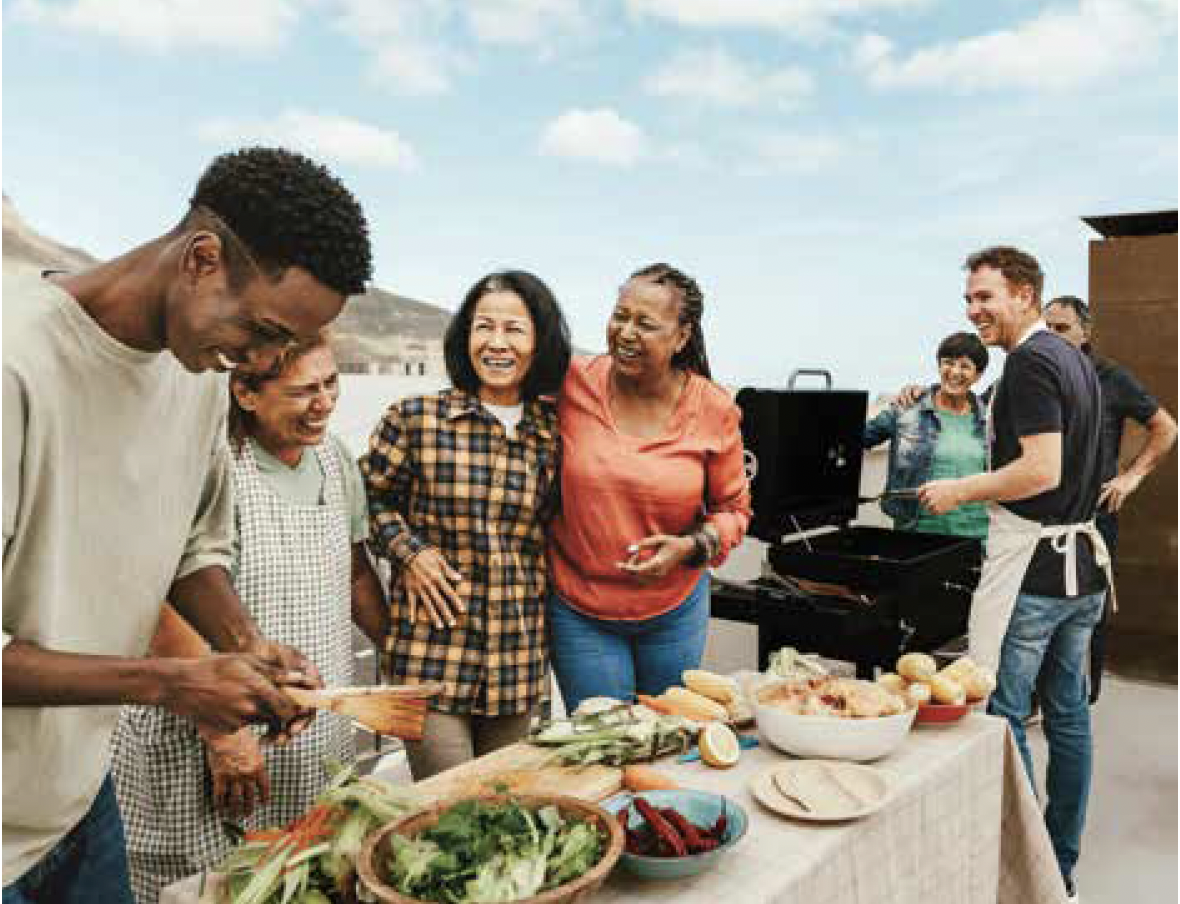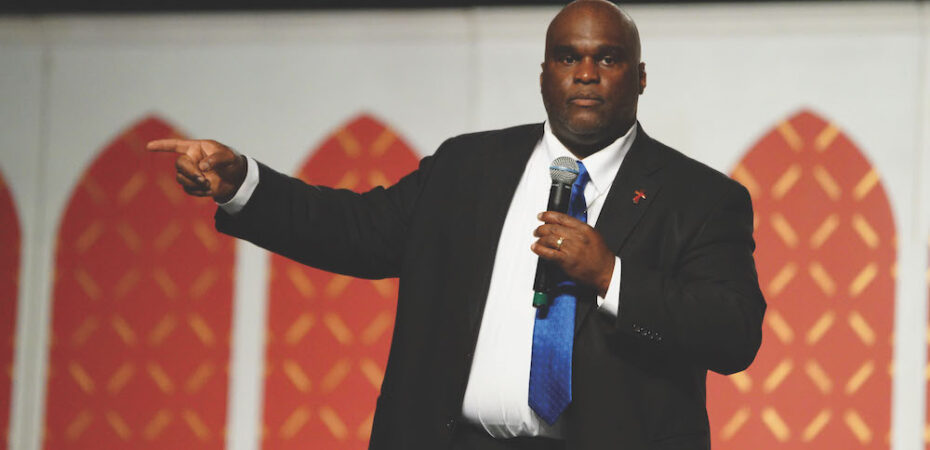Deacons and Racial Justice
Suggestions to improve cultural appreciation and awareness in our communities
Deacon Harold Burke-Sivers Comments Off on Deacons and Racial Justice
In July 2020, the Vatican Congregation for the Clergy issued an instruction on ”the pastoral conversion of the parish community in the service of the evangelizing mission of the Church. In it, Pope Francis outlines a simple theology of diaconal service in the parish, clarifying the specific role of deacons and their characteristic gift of service within the ecclesial community and acknowledging that the deacon’s ministry in parish life is a development since the restoration of the diaconate as a permanent order.
“Its resumption at the Second Vatican Council,” the pope said, “coincided with a doctrinal clarification and expansion, which no longer ‘limited’ the diaconate to charitable service alone or defined it, as did the Council of Trent, as transitional and almost exclusively identified with liturgical service. The Second Vatican Council specified that it is a degree of the Sacrament of Holy Orders and that, consequently, deacons ‘strengthened by sacramental grace, in communion with the bishop and his group of priests … serve in the diaconate of the liturgy, of the word, and of charity to the people of God’” (No. 81).
With this firmly in mind, the Vatican reiterates that the deacon’s ministry in the parish is not unlimited. In the same section of the document, it says: “There are many ecclesial tasks, therefore, that can be entrusted to a deacon, namely, all those that do not involve the full care of souls. The Code of Canon Law, however, determines which offices are reserved to the priest and those that can also be entrusted to the lay faithful, while there is no indication of any particular office in which the deacon’s ministry can find specific expression” (No. 81).

This provides an opportunity for parishes to be bold and creative in utilizing deacons with the goal of bringing souls to Christ by effectively witnessing to the Gospel. It seems clear that deacons serve as essential components of parish life and ministry. Where the diaconate is welcomed or encouraged, every effort should be made to advocate and promote diaconal ministry, which is especially suited to adapt to the shifting sands of change and developing paradigms emerging in the 21st-century Church.
One of the areas of parish life and ministry where deacons can play an integral and essential role is fostering racial justice. Racial and cultural discrimination, which lead to divisions within our country and in our parish communities, are antithetical to love, truth and freedom.
One of the reasons why racial tensions are running so high today is that the death of Dr. Martin Luther King Jr. created a leadership vacuum in the fight against racism. With no competent leaders stepping forward to fill that void, we have seen a plethora of individuals and organizations that claim to be advocates of racial justice but, in reality, use racism as a Trojan horse to conceal an agenda that actually contravenes the cause of racial equality.
The Church, firmly rooted in her sacramental life, moral teachings and social-justice principles, is perfectly poised to assume this leadership role, and who better to take the lead on this issue than her deacons?
Diversity in the Parish
As awesome as cultural diversity is, it can be a source of contention and volatility in parishes. Sometimes, we fear what we do not understand, or simply choose to ignore people who are different from us. When this happens, we tend to put spiritual blinders on, creating a kind of cultural tunnel vision. This may cause us to believe, for example, that Mass in Spanish is only for Hispanics.
Subsequently, tensions can make their way into parish life, causing both subtle and overt divisions within the Body of Christ. We create cultural silos and remain in the comfort zone of people who look like us. This isolation causes subtle separation from others in the parish and, if it continues, can lead to division — that is, the perception that one cultural group seems to be favored or preferred over another. Thus we miss opportunities to learn from one another, to grow in God’s love and to see the image and likeness of God in the person standing in front of us. We are not loving our neighbor as ourselves.
And yet, change is possible if we are willing to work together for forgiveness, reconciliation and peace. Deacons can serve as catalysts for such change by acting as liaisons between cultural groups and working to improve cultural appreciation and awareness, thus facilitating the process of healing division.
………………………………………………………………………………………………………………………………………………….
U.S. Bishops on the Sin of Racism
“Racism is the sin that says some human beings are inherently superior and others essentially inferior because of races. It is the sin that makes racial characteristics the determining factor for the exercise of human rights. It mocks the words of Jesus: ‘Treat others the way you would have them treat you.’”
— “Brothers and Sisters to Us,” U.S. bishops, 1979
…………………………………………………………………………………………………………………………………………………..
When I first arrived at my current parish, there were three distinct groups: the Vietnamese community, the African community, and the English-speaking community (in addition to a mix of other small groups including Filipinos, African Americans, Irish, Germans and Croatians). My first impression was that the parish was split three ways. The Vietnamese, in order to maintain their language and cultural identity, had their own Mass and catechetical instruction for youths and those in OCIA. The African community led the singing at the English-speaking Mass once a month (most of the songs and Mass parts were in Swahili). The English-speaking community, like the Vietnamese, basically kept to themselves.
Although everyone seemed to like this arrangement, I soon noticed two things. First, outside of parish council meetings and the annual parish fundraiser, the three groups rarely spent time together worshipping and socializing. Second, Mass attendance declined noticeably when the African choir led the singing. Although these divisions were across cultural lines (rather than racial divisions), the root cause seemed to be lethargy and indifference; the groups were not on each other’s radars, so to speak. So the pastor developed a plan to more closely unite the parish, which I helped implement. Here are a few suggestions that helped draw the groups together that deacons can adapt and implement in their own parishes.

What Deacons Can Do
Create opportunities to appreciate the gift of cultural diversity. We began by hosting a series of potlucks where each of the ethnic communities was appreciated and celebrated. The diversity of food, music, native dress and dancing was amazing! The best part, however, was the stories and testimonies of parishioners who openly shared their experiences of being a person of color in the Catholic Church. The parishioners began to realize how much we all have in common, and it brought the parish family together. In fact, the potlucks were so successful that they were extended to include other parish celebrations such as baptisms, anniversaries, graduations and birthdays. If you do not have much cultural diversity in your parish, not to worry. You can invite Catholics of color from neighboring parishes. The potluck is a simple and fun way to begin removing stereotypes and caricatures and to begin seeing people.
Don’t be afraid of a little cultural cross-pollination. the pastor decided to ask the Vietnamese choir to sing at the English-speaking Mass on the feast of the 117 Vietnamese Martyrs (Nov. 24) and the African choir to sing at the Vietnamese Mass for the feast day of St. Josephine Bakhita (Feb. 8). Slowly but surely, each group began to appreciate the authentic and reverent cultural expressions that acknowledge the unique gifts we all bring to Mass and the entire Body of Christ.
We also added multicultural images of saints in the church. The statues of St. Martin de Porres and Our Lady of La Vang were brought together with the statues of St. Boniface and St. Patrick, which, respectively, celebrated the German and Irish heritage of the parish. Icons of a number of saints of color were installed, including St. Kateri Tekakwitha. Although more subtle, these icons and statues counter the images and sound bites from television, movies and social media that inundate us with caricatures of various races that are often belittling and derisive and, even if only subliminally, plant seeds of half-truths in the minds and hearts of the viewer or listener.
Teach people to see past stereotypes. Stereotyping creates images that leave negative or unrealistic impressions on susceptible and vulnerable minds and hearts, especially those of children. We need to recognize our own prejudices, acknowledge them, then work hard to crucify this way of thinking and, instead, see the image and likeness of God in others.
As Pope St. John Paul II taught: “Love, too, goes beyond our brothers and sisters of the same faith since ‘everybody is my brother or sister.’ In each individual, especially in the poor, the weak and those who suffer or are unjustly treated, love knows how to discover the face of Christ, and discover a fellow human being to be loved and served” (Familiaris Consortio, No. 64).
Make a serious effort to facilitate effective change through conversation and dialogue. Deacons can cultivate meaningful conversations with the goal of building integrity, sharing wisdom and imparting knowledge that can lead to a reciprocity of love and change. Reaching out with compassion to those of different races and hearing their stories, and responding with empathy and working through differences with humble, contrite hearts can create a harmonic of love that will reverberate in our hearts and throughout our land.
Pray and fast for the grace to be a voice for real change. Pray before Jesus who is truly, fully and substantially present in the Most Blessed Sacrament in Eucharistic adoration for personal conversion, as well as the strength and commitment to speak the truth.
Many people pray, but the addition of fasting to prayer can produce powerful results. This potent combination is a key element to overcoming the influence of sin in our lives. When the disciples asked Jesus, “Why could we not drive [the demon] out?” Jesus said to them, “This kind can only come out through prayer [and through fasting]” (cf. Mk 9:28-29). The fast can be from food and drink, or from an activity that we enjoy. Fasting is effective because the feeling of emptiness produced by the deprivation of a physical satisfaction (food, television, etc.) reminds us that what we are really seeking and hungering for — what our hearts truly desire — is a life-giving relationship with the living God. Fasting empties us so that God can fill us.
Unite the Beatitudes and principles of Catholic social teaching in adult faith-formation programs. Show how faith is not simply what we do, but who we are. One of the easiest ways to do this is to form parish study groups to discuss Church documents on racism. These groups can meet once or twice a month, working through each document thoughtfully and prayerfully. Study groups like these can also be an excellent form of mystagogy for new Catholics who have entered the Church through the RCIA process and are looking to go deeper in their faith. Again, deacons can serve as excellent facilitators of these groups.
The biggest challenge will be getting study groups started. This may be difficult for a number of reasons: lack of interest and desire, little or no support, excuses — for example, “We already have too much going on” — of busyness with families, jobs and everyday life. Some people will not come to the study group because they believe racism and prejudice do not exist, or they do not want to miss the football game, or they simply do not think about these issues at all. No matter. As the saying goes, “The longest journey starts with a single step.” The study group is not about metrics and large numbers of participants, but the glorification of God.
Brothers, we must not be afraid to live out our call to holy orders with fervor and enthusiasm! We must not be afraid to stand up for truth and racial justice. Let us lovingly accept the Lord’s invitation to “go and do likewise” as living, sacramental signs and witnesses of God’s tender love and mercy, so that we may truly be the “salt of the earth” and the “light of the world.”
DEACON HAROLD BURKE-SIVERS serves at Immaculate Heart of Mary Catholic Church in Portland, Oregon.
……………………………………………………………………………………………………………………………………………….
‘Equality of All’
“Since all men possess a rational soul and are created in God’s likeness, since they have the same nature and origin, have been redeemed by Christ and enjoy the same divine calling and destiny, the basic equality of all must receive increasingly greater recognition.”
— Gaudium et Spes, No. 29
…………………………………………………………………………………………………………………………………………………





